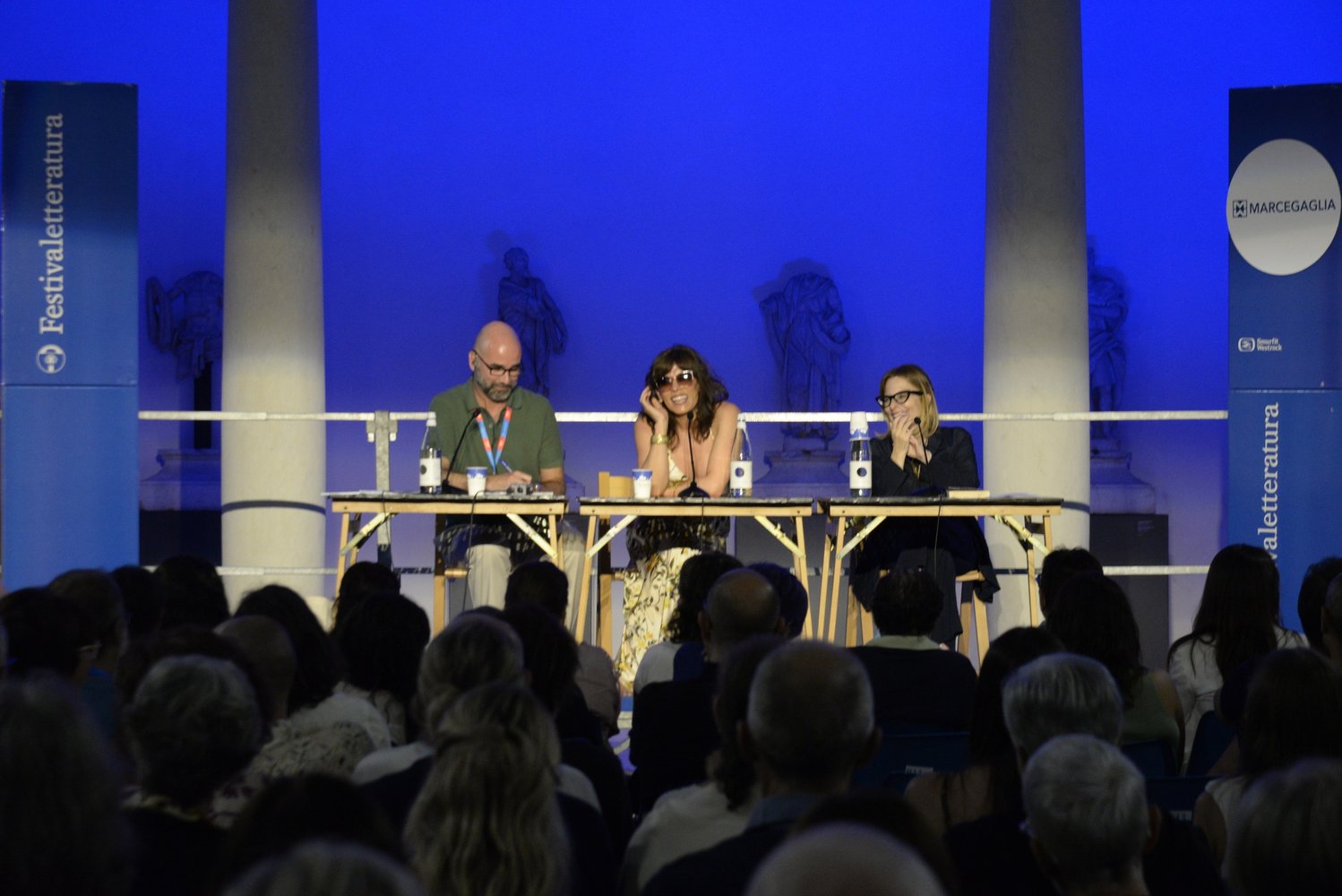



The Margins of Language
Camila Sosa Villada has become one of the most striking voices in contemporary Latin American literature. Teresa Ciabatti has nothing but admiration for the genius Argentinian writer, who shrewdly opens up to the audience at Palazzo San Sebastiano. Sosa Villada does not write from innocence but from experience. As a writer, she states, she looks at the reader from above, a position many cannot bear, because when someone marginalized dares to look directly, or even from a higher ground, it unsettles the balance.
In her most acclaimed novel, Las malas, she narrates her development as a transgender woman in Córdoba, Argentina, among a community of trans sex workers, often compared to animals. In her vision, travestis are often seen, and often made to see themselves, as animals. More beasts than humans, they have to prove not only their dignity but their very souls, to demonstrate that they have rights. This animalist attribution reveals the limits of language, what words cannot capture or dignify. In Las malas, her syntax is wild and absolute, a language that belongs only to her. In her other novel, Tesis sobre una domesticación, by contrast, the tone shifts, subtle, precise, almost academic, proof of a cultivated writer dissecting the very act of taming.
Camila Sosa Villada wants to "break language". Ever since childhood, language defines and confines: what is said about women, about men, about trans people, becomes a cage. Old enclosures persist, despite feminist rebellions or intimate pacts, disguised as freedom. Open relationships, the acceptance of betrayal, even celebrated ignorance, can be new forms of captivity. In Las malas, transvestis are placed in a park as if in a zoo. They also inhabit Tía Encarna’s flat, a refuge and protection, but also a place of hiding and concealment. Enclosure and domestication repeat, and the betrayal of words, of culture, remains unresolved.
Her literature, however, is not simply about rebellion. It is also a literature of orphans. She explained how once she “adopted an orphan, my mother", turning her into her daughter. This inversion of love and care, of seemingly "one-way", "vertical" relationships, shapes her writing. In her books, orphans multiply, echoing her mother’s pain, her family’s loss. For Camila Sosa Villada, literature is the only way to conjure such absences and to give voice to grief that otherwise could never be spoken.